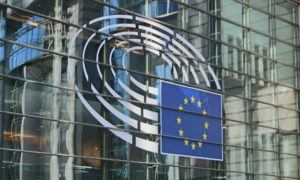 The long wait for a successful European CBD novel food authorisation predicted by CBD-Intel looks more certain than ever, with the European Commission confirming no applicants had furnished the required further information that would have facilitated a quicker process once assessments resumed.
The long wait for a successful European CBD novel food authorisation predicted by CBD-Intel looks more certain than ever, with the European Commission confirming no applicants had furnished the required further information that would have facilitated a quicker process once assessments resumed.
Officials from the European Commission (EC) met with CBD-Intel to discuss the status of novel food applications in light of the ruling in the Kanavape case. They confirmed that the EC no longer views CBD derived from the entire cannabis plant as a narcotic and that it will resume the review of novel food applications for products that contain CBD.
The Commission had placed a freeze on applications in June 2020 due to its preliminary view that CBD extracted from hemp flower was a narcotic, and since then nothing has happened with the applications. Not only did the EC not review the applications further but no applicants provided more data to facilitate a quicker process once the freeze was lifted.
Further, while the EC acknowledged that some applications “look good,” it expressed doubts over many as they contain insufficient data. It said some extreme examples consisted only of the applicant’s name.
In all, the EC has received more than 70 novel food applications for CBD products, including for CBD isolate and full spectrum products, as well as for synthetic CBD products.
Other bodies’ views don’t count
The Directorate-General for Health (DG SANTE) is currently reviewing the applications to determine whether more information is needed before it passes them on to the European Food Safety Authority (EFSA). To date, no applications for plant-derived CBD products have been forwarded to the EFSA, but it is currently reviewing three applications for synthetic CBD.
The timetable for potentially approving CBD products is still difficult to know, according to the EC. The EFSA is currently evaluating synthetic CBD – which was not subject to the same freeze as hemp-derived CBD – and has nine months to conduct its risk assessment. However, that timeframe can be paused if more data is required.
The length of time needed will depend largely on how quickly applicants respond to the EC’s request for more data and documentation. The EC confirmed to CBD-Intel that approval from other bodies – such as the UK’s Food Standards Agency (FSA) – would have no impact on its own assessment process.
The EC confirmed that it had been in regular contact with other agencies, such as the UK FSA and the US Food and Drug Administration (FDA) – though less since the start of the COVID-19 pandemic – on relative stances on CBD food products. However, it would not treat a CBD product that had received approval from another food safety authority any differently than any other novel food application.
In other words, products approved by other authorities will not be fast-tracked and must go through the EC’s normal application process.
Kanavape ruling isn’t the end of the story
Meanwhile, when asked specifically about the Kanavape ruling, the EC made it clear that it does not interpret the judgement as broadly as some in the industry.
The officials said the ruling by the Court of Justice of the European Union in the Kanavape case did not change its view on full spectrum products. The EFSA has established an acute reference dose for THC of 1 μg per kg of body weight, and the EC reaffirmed that any product that delivered a higher dosage would not be approved by the EFSA.
It added that its preliminary consideration of CBD oil is that it is a food supplement as opposed to a food ingredient. Nevertheless, all foodstuffs are regulated.
The EC describes a food supplement as “concentrated sources of nutrients (or other substances) with a nutritional or physiological effect. Such food supplements can be marketed in ‘dose’ form, such as pills, tablets, capsules, liquids in measured doses, etc.” If adequately proved to the authorities, food supplements may make health and/or nutritional claims.
What This Means: The Kanavape decision has already had a significant impact on the CBD industry in the EU by lifting the EC’s hold on novel food applications. However, it will still be a lengthy process before any novel foods are approved, and applicants would be wise to provide as much information and data as possible with their application to expedite the process.
The EC does not appear at this point to take an expansive interpretation of the Kanavape case as it pertains to novel foods.
– Anthony Traurig CBD-Intel staff
Photo: Guillaume Périgois







